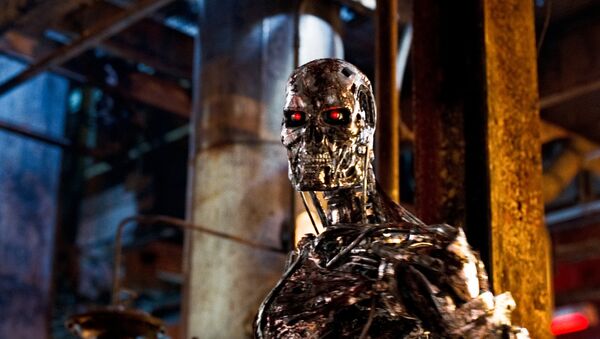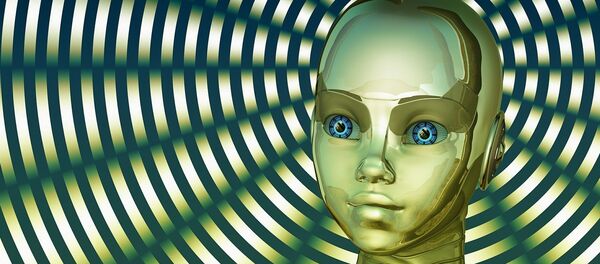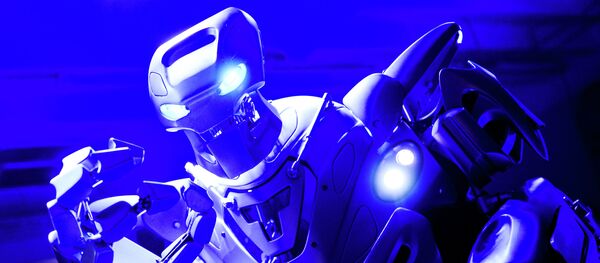The interview came after the Japan government announced plans to allocate a whopping 2.5 trillion yen (more than 20 billion dollars) to launching a so-called robot revolution in time for the 2020 Olympic Games in Tokyo.
Robots have already started to take over humans' jobs in Japan. There are robots working as receptionists in one of the country's hotels, robots driving cabs and also a robot hosting a TV program. The government has also announced a plan to create robot nurses which would assist elderly patients.
#USBabroad
— K Jackson (@J_A_C_K_S_O_N_1) 13 июля 2016 г.
Only In Japan. Age guessing Robots pic.twitter.com/MF4syyQnNS
Nakhapetyan, for his part, mentioned a number of jobs that he said robots can handle, giving people the opportunity to focus on more creative, less rote activities.
According to him, robots can do monotonous work which requires no qualifications but demands accuracy and perseverance, as well as work in hazardous environments, including outer space. On the other hand, there is a serious problem related to all this, he warned.
#Japan's sony says #robots & artificial intelligence big part of its future https://t.co/B54eFtPRbe #AI pic.twitter.com/YHPJVh0vZI
— ICAAsiaPacific (@copperlife) 1 июля 2016 г.
"Imagine, for example, your refrigerator sending you relevant data in online mode and a robot chef cooking you a meal. It means that information about your culinary preferences will be sent to major companies' servers. There will certainly be those who will want to collect this information for analysis. Namely, a person's private life will be exposed to others," he said.
Russian physicist and futurologist Alexei Turchin went even further, warning of a worst-case scenario related to robots replacing human beings. According to him, "these risks, in fact, are closer than anyone can think, given that there are already neural networks and autonomous vehicles."
"As a program, artificial intelligence can quickly exceed human abilities, thus destroying or 'wrongfully favoring' people. This is the so-called 'maximizer clips' scenario which pertains to crazy robots which are not interested in anything other than making staples out of any material," he said.
Turchin also warned of the danger related to self-replicating nanorobots, which he likened to a cross between a mechanism and a living cell.
Eric J. Drexler envisions a world where nanoscaled robots called Nanites manipulate and control matter similar to living cells. #MEMS
— Glossology (@Glossology) 10 ноября 2014 г.
He referred to American scientist Eric Drexler, who described a disaster scenario in which the artificial intelligence does not stop. Like a virus, it would continue to break down everything it sees into constituent elements in order to assemble copies of itself.
"Under this scenario, artificial intelligence would use lots of building material, including human bodies and the biosphere. Another scenario is the deployment of a military nanorobot to an enemy's camp, where it would replicate without control," he said.
Even if all this resembles an apocalypse, Turchin said that the nuclear and biological weapons-related risks are much more real than those pertaining to nanorobots and artificial intelligence.
Researchers from Japan's Nomura Research Institute (NRI) along with their counterparts from Oxford University have forecast that by 2035 "up to 49 percent of jobs [in Japan] could be replaced by computer systems," according to Engadget.com.
The research showed that people who work at help desks, deliver goods or are involved in agriculture could lose their jobs to robots right now. At the same time, people whose professions are associated with teaching or writing won't be replaced by computers in the foreseeable future.



